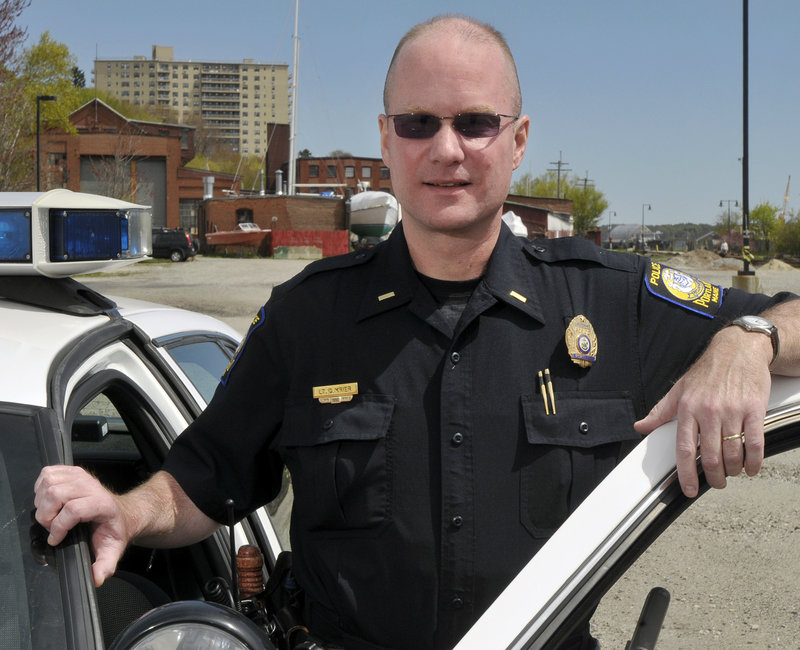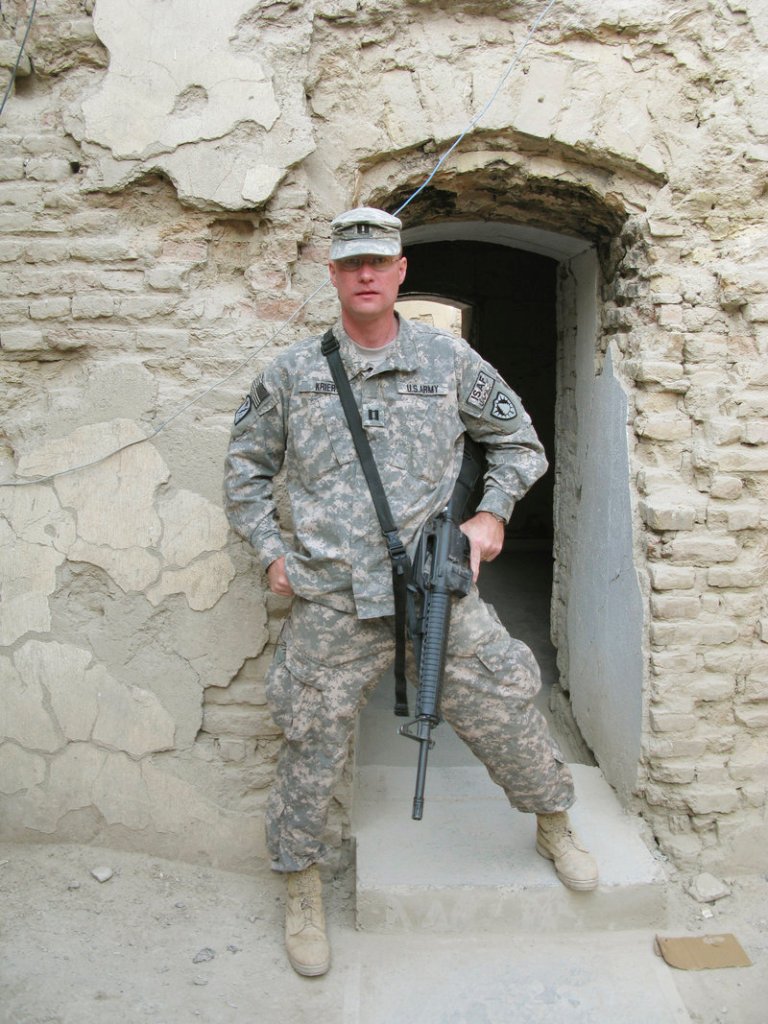PORTLAND – When terrorists attacked on Sept. 11, 2001, Don Krier, a Portland police detective, wasn’t content to guard the airport.
“We had this historic event and I wanted to be more involved,” he said.
So Krier, who was 41 and had been out of the Army Reserves for 15 years, set about finding a way to ship out for Afghanistan.
It would take nearly seven years and two military waivers, but Krier spent most of 2009 in Kandahar, helping to coordinate the movement of supplies to support the U.S. war with the Taliban in southern Afghanistan.
“I can honestly say I didn’t enjoy it, but my intention wasn’t to enjoy it,” Krier said. “I had to do it, personally.”
Krier wanted to go to Afghanistan because, he said, that was where the terrorists behind Sept. 11 came from. He believed strongly that protecting the country meant military action overseas.
His wife, Shelley, was supportive. A nurse who also served in the Army Reserve, she, too, tried to sign up but was turned down.
Krier wasn’t even allowed to apply, initially. Army officers who had been out of the service for as long as he had weren’t welcome. But over time, the rules changed with the Army’s needs.
An exemption was created for returning officers.
He still had the age obstacle. The cutoff for signing up was 37.
But his police training made him an attractive recruit, and he was in good shape. He persuaded an Army board to grant the waiver, and was recommissioned as a captain, the same rank he had when he left the service in 1986.
“I just wanted to go to Afghanistan, but that turned out to be a little unrealistic,” he said. “I was excited but I wasn’t in a unit. I still wasn’t going any place.”
Although it’s unusual to rejoin the military in middle age, Krier said the timing actually seemed to make a lot of sense.
The Kriers have three children, a daughter in graduate school and two boys who were graduating from high school in 2008.
One son is now in the Marine Corps and the other is in the Marine Reserves.
Eventually, Krier joined the Maine National Guard and asked to be assigned to the next unit going overseas. He was assigned to the 286th combat support battalion headquarters.
He took a military leave of absence from the police department in February 2008 and spent five months training at Fort Lee, Va.
They did battle drills and solo warrior tasks and, two mornings a week, instead of physical conditioning, they did combat, hand-to-hand, Army wrestling.
“I’d have these 20- to 30-year olds literally beating the crap out of me,” Krier said. “I’m a police officer but I usually have some other guys giving me a hand.”
The unit mobilized at the beginning of 2009.
In Kandahar, Krier helped to coordinate the movement of supplies, convoys and a fleet of trucks called “jingles,” for their colorful accessories and decoration. He also served as a liaison to the Afghan National Army.
Krier was 49 by the time he deployed, roughly twice the age of some of his comrades. It required some adjustment.
“The Army had changed,” he said. “The complexity had evolved so far — it was a completely different experience” from the one he had more than two decades earlier.
The change to Army life also was more abrupt, coming from the comfort of middle age.
He had just moved into a new house, his sons were going out on their own. It was time for easy street. “I’ve had a very comfortable life, and this wasn’t the same,” he said.
At the same time, he had maturity and the perspective of having been outside the military for many years.
“You’re dealing with a guy who’s almost 50 years old and he’s been exposed to a lot of things as a police officer,” said Army Lt. Col. Blair Tinkham, who worked closely with Krier in Kandahar. “His maturity and adaptability in different situations make him more successful when things don’t go as expected.”
Krier found he was the idealist. He envisioned joining an effort that was inexorably moving toward victory. He was disappointed.
“The strategy wasn’t clear. It seemed like we had been there forever,” Krier said.
Many of the younger soldiers had served in Abu Ghraib prison in Iraq, and were there when the photos of mistreated prisoners surfaced, though they had nothing to do with the acts.
They were more pragmatic, he said, content to do their job well and not be frustrated.
Conditions changed as the unit was leaving, he said. Gen. Stanley McChrystal had started a new initiative, securing population centers and major supply routes.
“There just seemed to be a more concerted effort at counter-insurgency,” he said.
The unit returned to the U.S. in December.
As hard and occasionally frustrating as it was, Krier said, it was an important undertaking for him to rejoin the Army.
Today, the 81 members of the 286th Combat Support Battalion and their families are being honored by state officials with a Freedom Salute Ceremony in Bangor, in recognition of their successful deployment to Afghanistan.
Staff Writer David Hench can be contacted at 791-6327 or at:
dhench@pressherald.com
Send questions/comments to the editors.




Success. Please wait for the page to reload. If the page does not reload within 5 seconds, please refresh the page.
Enter your email and password to access comments.
Hi, to comment on stories you must . This profile is in addition to your subscription and website login.
Already have a commenting profile? .
Invalid username/password.
Please check your email to confirm and complete your registration.
Only subscribers are eligible to post comments. Please subscribe or login first for digital access. Here’s why.
Use the form below to reset your password. When you've submitted your account email, we will send an email with a reset code.